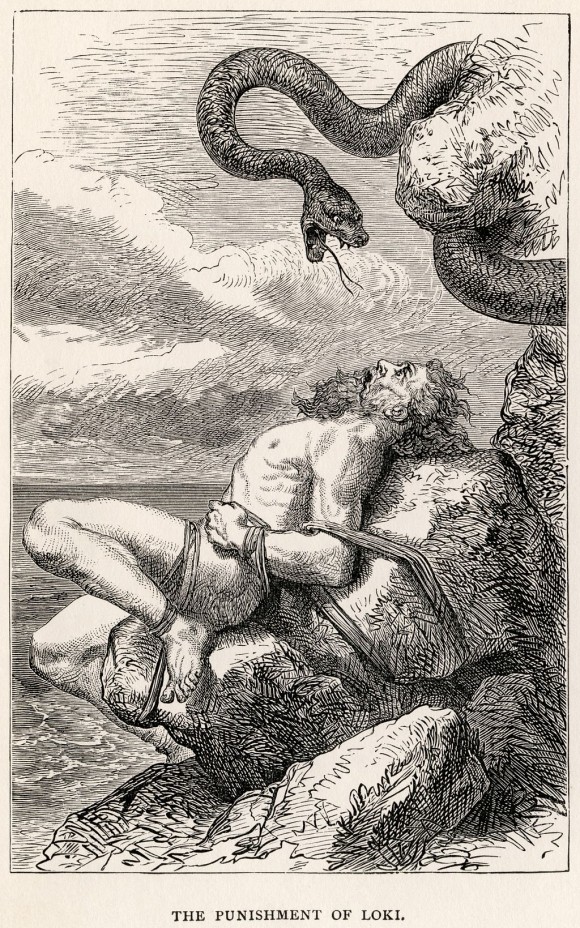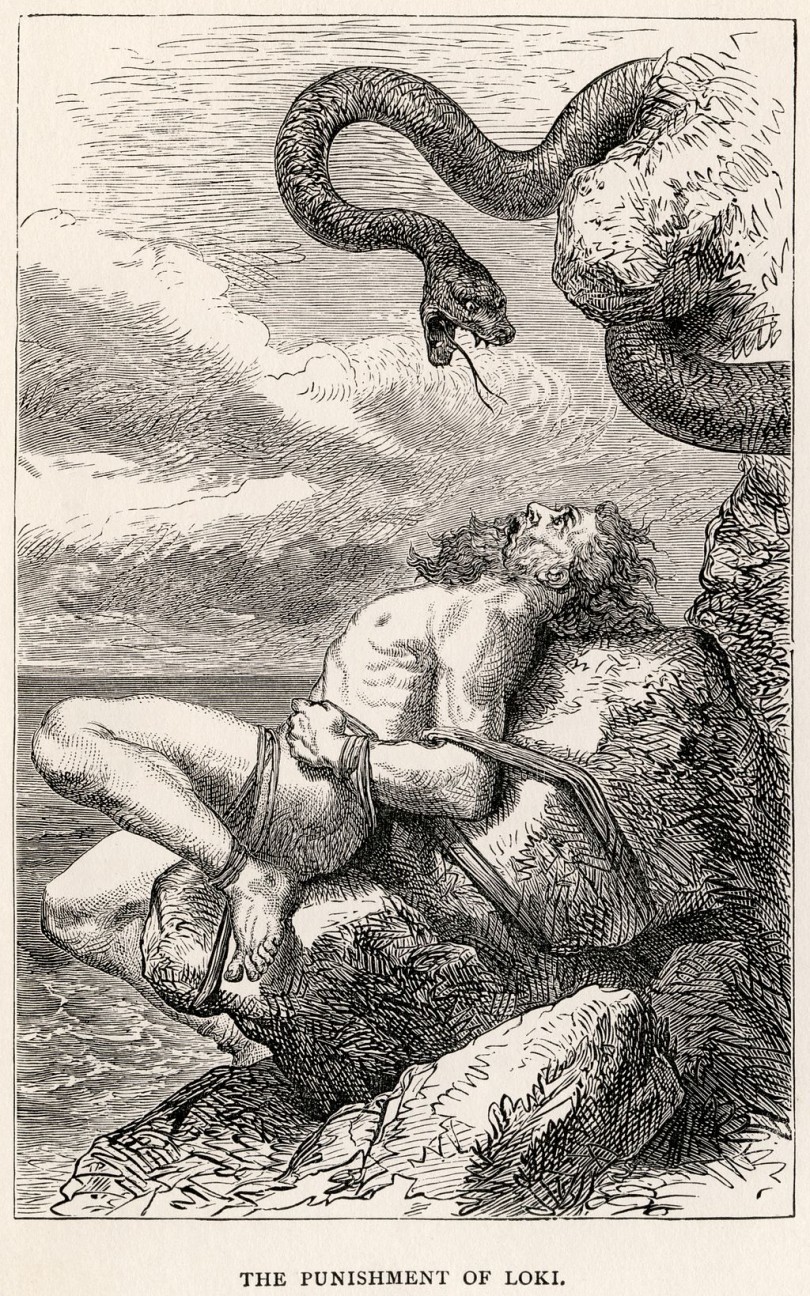aNewDomain — From a very young age, we want to see people punished.
Probably from a very young age, we were punished — for transgressing authority, doing things that might be dangerous, not catching on fast enough. Whatever. The fact is that people who loved us also hit us or took away our rights or took away our privileges makes it difficult to accept a basic truth about human psychology. Punishment isn’t that effective to modify behavior.
Despite all the evidence, we obviously believe otherwise.
This all has to do with evolution.
We have been on Earth in roughly this form for just about a million years. During only the last century have we had any access at all to statistical data about human behavior, and only in the last half-decade have smartphones become endemic, and thus there’s mass potential access to library database and statistical abstracts.

During the remaining nine hundred ninety-nine thousand, nine hundred ninety years, we’ve had to rely on stories. Our elders say things are thus and so, based on how their observations play with what their elders said when our elders were our age. Even gorillas can do this. When a gorilla gets a stomach ache, it asks the matriarch of the troop, and she leads it to a plant with medicinal effect.
The empirical evidence increasingly does not support punishment as a means of behavioral modification. Punishment might be simply ineffective. Or it might be actively harmful.
Most investigations going on right now center on physical punishment, but even taking away privileges or shouting at one’s children might do lasting psychological harm.
Punishment results in compliance. It results in obedience to authority that might or might not last past the application of that authority. To the extent that some kids go a bit wild when they get to college, basic training or Rumspringa, or anywhere else clear of the influence of their parents for the first time, the point is illustrated: Children exposed to unduly authoritarian upbringings do not learn how to think through their choices. They learn to obey authority and then are lost when nobody is there to tell them any longer what to do.
Punishment, for parents, is like a psychological defense. If you plan on taking it away, you have to give them something else to rely on.
If a parent has relied on punishment their whole life, at this point they are generally scoffing and stuttering. It is hard to get to the alternatives because we are stuck on the arguments. But, as I am informed, readers of aNewDomain are reasonable, educated folks, by and large. So let’s get straight to the alternatives.
First, help people have a life worth living.
Problematic behavior tends to be a product of an unmet need. It tends to be more pronounced and frequent when a person is unable to communicate their needs or meet them alone. So, teaching communication heads off most of the behaviors we feel like punishing.
Appropriate levels of self-esteem are helpful, too. Bullying comes from self-esteem that is high rather than too low, typically, but appropriately high self-esteem for the right reasons, and self-efficacy are both great. Sometimes those unmet needs are esteem needs.
Helping people be included is helpful, too. Occupied, busy, productive; respected; with a good, satisfying social life.
Young children need all this, but they also need to know not to touch the stove or run into the street. At very young ages, we still don’t have to hit — we can make the environment safer within reason, and we can distract until the child is old enough to understand our reasoning.
I don’t really care about your children anyway. I care more about the two million people behind bars in the United States. Yeah, I’m rounding down to two million. What’s 300,000 people between friends?
And remember the babies? Remember being hit by your folks? In the U.S., loving means hitting, despite all the evidence that hitting isn’t effective and could well be harmful.
We’re genetically programmed to punish, especially people who are “different” from “us.” We have no problem with the idea that rape is endemic inside our prisons, that it is very unlikely a prisoner will come out of the system without having been sexually abused and/or learning to sexually abuse others. We think “they” deserve it.
We don’t worry much about people joining race gangs for their own protection. A drug economy. Rapists who learn to kill their victims because they are in prison for leaving a victim to testify against them. Kids in prison for minor offenses who learn to become more effective criminals. We don’t have a problem with people losing their voting rights, being endebted for life to the “justice” system with no legal way to make money to pay those debts.
Prison has little correlation to crime rates and less demonstrable causality. The death penalty has no correlation to crime rates. But we keep voting for “tough on crime” politicians who in fact are only tough on criminals. To be really tough on crime, we need to be tough on the social conditions that lead to crime.
The conditions that lead to crime, often, are poverty and especially joblessness. It’s the inability to do for one’s self and the lack of voice of the oppressed and marginalized who try to get change.
Perhaps as troubling in the modern age is a connection between profit motives and punishment. For folks who think that for-profit prisons can do a good job and won’t lead to corruption in the system, the evidence points the opposite way. Kids sold for profit to jails who use them as slave labor, then use the rules to keep them incarcerated, sometimes for years, for very minor sorts of offenses. Like chewing gum in class and so on.
Look. Punishment is for babies. We need to grow up.
It is the punishment ethic — the idea that people are bad and need to be policed, and that they deserve what they get. Raped in prison or shot by cops — it’s this idea that is killing us. Keeping bad people in power. Keeping whole segments of society marginalized.
People are good. We outgrow infancy, learn to respect differences, feel other people’s pain. Or we can, if we try. And when we try, we can get results. Do you want all the drug users locked up, or do you want there to be fewer people who feel like they need to use drugs?
If it’s the latter, consider social rehabilitation. We don’t need to talk about drugs at all, just help people find acceptance in appropriate peer groups. It isn’t a chemical action causing addiction behaviors so much as it is loneliness and absence of meaning.
The litany on punishment is that it damages the relationship between punisher and punished, that the organism becomes inured to the punishment (“That didn’t hurt! That still didn’t hurt!”), that it teaches discrimination between stimuli such that the organism only takes the given action when not observed, teaches more ways to not be observed including escalating the crime, and teaches conformity and authoritarianism.
As I said, I don’t care specifically about your children. If that’s what you want for them, go for it. But I do care about us as Americans. It’s time to outgrow our infantile obsession with punishment and with a punishment system that too often is just an extension of our history of racism.
For aNewDomain, I’m Jason Dias.
Image credit: Louis Huard (1813-1874) [Public domain], via Wikimedia Commons













